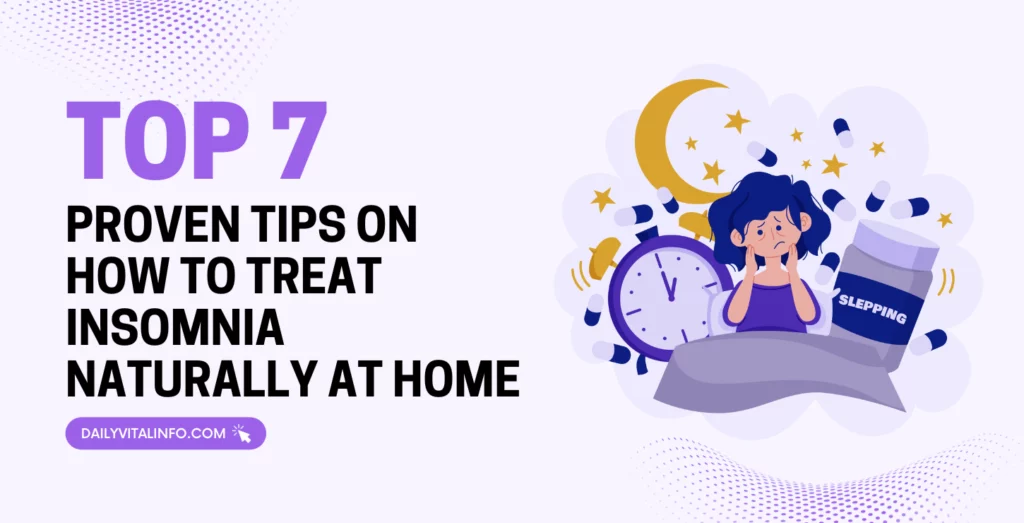One of the essential sleep improvement tips for adults is to maintain a regular wake and sleep schedule, establish a relaxing bedtime routine, create a sleep-friendly environment, lie down when sleepy, and use your bed exclusively for sleep and sex. Avoid eating within a few hours of bedtime.
By following these tips, adults can develop healthy sleep habits and improve their overall well-being.
Establish a consistent sleep schedule.
Establish a consistent sleep schedule by waking up and going to bed simultaneously every day, even on weekends. This helps regulate your internal clock and improves the quality and duration of your sleep.
Develop a relaxing bedtime routine.
Developing a relaxing bedtime routine can significantly improve sleep for adults. By maintaining a regular sleep schedule, creating a sleep-friendly environment, and using the bed solely for sleep and sex, adults can achieve better quality sleep and wake up refreshed and rejuvenated.
A regular, relaxing bedtime routine is essential for adults to improve their sleep quality. When you establish a consistent way, your body learns to recognize the signals that it’s time to wind down and prepare for sleep. Here are some effective strategies to develop a relaxing bedtime routine:
Come up with a regular, relaxing bedtime routine: Following the same activities before bed, every night is a habit. This consistency helps signal your brain that it’s time to relax and prepare for sleep. Some activities you can include in your routine are taking a warm bath, reading a book, or practicing light stretching exercises.
Create a separation between schoolwork and sleep time:
Creating a clear separation between your schoolwork and your sleep time is essential. Avoid studying or working on assignments right up until bedtime. Instead, allot a specific time slot during the evening to complete your school tasks and engage in more relaxing activities before bed. This separation allows your mind to unwind and transition into a more restful state.
Determine if you are using electronic screens too close to bedtime: Electronic screens, such as phones, laptops, and tablets, emit blue light that can disrupt your sleep-wake cycle. Try to limit your screen time to at least an hour before bedtime. Instead, engage in activities that promote relaxation, such as listening to calming music or practicing deep breathing exercises.
Creating a relaxing bedtime routine can significantly improve your sleep quality and overall well-being as an adult. Following these tips, you can establish a consistent routine that helps you unwind and prepare for a restful night’s sleep. Remember to stick to your routine consistently to allow your body and mind to adjust and experience the full benefits of a relaxing bedtime routine.
Create a sleep-friendly environment.
Create a sleep-friendly environment to improve your sleep as an adult. Make sure your bedroom is quiet, dark, and at a comfortable temperature. Remove electronic devices from the bedroom and avoid large meals, caffeine, and alcohol before bedtime.
1. Keep Your Bedroom Cool, Dark, and Quiet: Ensure that your bedroom is at a comfortable temperature. A slightly cooler room promotes better sleep. Use blackout curtains or blinds to block out unwanted light that can interfere with sleep. Invest in a good pair of earplugs or a white noise machine to drown out any distractions or noise pollution that may disrupt your sleep.
2. Declutter Your Space: A cluttered bedroom can lead to a cluttered mind, making it difficult to unwind and fall asleep. Keep your surroundings clean and organized to create a sense of peace and tranquility. Consider utilizing storage solutions such as under-bed storage bins or closet organizers to keep your belongings neatly tucked away.
3. Choose the Right Mattress and Pillows: Investing in a comfortable mattress and pillows that suit your sleeping style is essential. Take the time to find the right level of support and comfort that aligns with your preferences. Your bed should be a haven of comfort, allowing you to relax and sleep peacefully.
4. Limit Electronic Devices: Electronic devices emit blue light, which can interfere with your body’s natural sleep-wake cycle. Avoid using electronic devices such as smartphones, laptops, or tablets in bed, as they can stimulate your brain and make it difficult to fall asleep. Instead, create a designated area outside of your bedroom for electronic usage.
5. Create a Soothing Atmosphere: Consider using relaxing scents such as lavender or chamomile to create a calming atmosphere in your bedroom. Use essential oils, candles, or room sprays to help establish a sense of tranquility. Additionally, playing soft background music or using a white noise machine can help to drown out any external noise and promote more restful sleep.
By implementing these tips, you can transform your bedroom into a sleep-friendly haven that promotes relaxation. Take the time to create a serene environment that supports your sleep, and you’ll be well on your way to enjoying a restful night’s sleep, ready to tackle your academic endeavors with renewed energy.
Avoid Caffeine and Large Meals Before Bedtime
Another crucial aspect of improving your sleep is being mindful of what you consume before bedtime. Avoiding caffeine and large meals can significantly impact your ability to fall asleep and the quality of sleep you experience. You should skip that late-night coffee and opt for a light meal instead.
1. Limit Caffeine Intake: Stimulants such as caffeine can disrupt your sleep pattern and make it difficult to fall asleep. Avoid caffeinated beverages like coffee, tea, or energy drinks in the evening. If you must have your caffeine fix, make sure to do so at least 4-6 hours before bedtime to allow your body enough time to metabolize it.
2. Opt for Light, Digestible Meals: Consuming large, heavy meals before bed can lead to discomfort and indigestion, making it difficult to fall asleep. Instead, opt for lighter, healthier options that are easier on your digestive system. Choose foods rich in tryptophan, an amino acid that promotes sleep, such as turkey, nuts, or bananas.
Avoiding caffeine and lighter meals will give your body a better chance to wind down and transition into restful sleep. Remember, it’s not just about how long you sleep; it’s also about the quality of sleep you get.
Quantum Meditation Benefits: Unlock Your Potential with Mindful Energy
Top 12 Mental Health Activities for Ultimate Stress Relief and Balance
Consider Using White Noise or Other Soothing Sounds to Improve Sleep Quality
If you struggle with falling asleep due to external noises or find it challenging to unwind after a long day, incorporating white noise or other soothing sounds into your sleep routine can be incredibly beneficial. Here’s how these sounds can help improve your sleep quality:
1. White Noise: White noise is a constant, unobtrusive sound that masks other sounds and creates a soothing environment. It reduces the difference between background sounds and sudden noises, promoting a more peaceful sleep environment. Various white noise machines are available, but you can also find free white noise apps or websites that offer a range of calming sounds.
2. Nature Sounds: If white noise isn’t your preference, consider soothing nature sounds such as ocean waves, rain, or bird chirping. These natural sounds can help create a peaceful ambiance and induce relaxation, making falling asleep easier.
3. Guided Meditation or Sleep Podcasts: Listening to guided meditation or sleep podcasts can also aid in helping you relax and drift off to sleep. These audio recordings often incorporate calming music, soothing voices, and relaxation techniques to help your mind and body unwind.
Whether you choose white noise, nature sounds, or guided meditation, incorporating soothing sounds into your sleep routine can promote a more restful and rejuvenating sleep experience. Experiment with different sounds to find what works best for you and enjoy the benefits of a peaceful night’s sleep.

Optimize Your Bed For Sleep
Improve your sleep as an adult by optimizing your bed. Maintain a consistent sleep schedule, create a relaxing bedtime routine, and make your sleep environment comfortable. Use your bed solely for sleep and intimacy, and avoid eating close to bedtime.
Lie down To Go To Sleep Only When You Are Sleepy
It may seem obvious, but many adults tend to lie in bed even when they are not truly tired. This can lead to restlessness and difficulty falling asleep. It’s essential to listen to your body and lie down to sleep only when genuinely sleepy. Doing so can train your brain to associate your bed with sleep, making it easier to fall asleep quickly and stay asleep throughout the night.
Use Your Bed Only For Sleep And Sex
Creating associations between your bed and other activities, such as studying or watching TV, can disrupt sleep patterns. To optimize your bed for sleep, it’s essential to use it exclusively for sleep and sex. By doing this, your brain will associate your bed strictly with rest and intimacy, helping to cue your body for sleep when you lie down.
Invest in A Comfortable And Supportive Mattress And Pillows
Your mattress and pillows play a crucial role in your sleep quality. Investing in comfortable, supportive mattresses and pillows can significantly improve your overall sleep experience. A bed that is too firm or soft may cause discomfort and hinder your ability to fall and stay asleep. Similarly, using old and worn-out pillows can lead to neck and back pain. Choose a mattress and pillows that provide the right level of comfort and support for your body to help optimize your sleep.
Taking the time to optimize your bed for sleep can significantly improve your sleep quality and overall well-being. By following these tips, you can create a sleep-friendly environment that promotes restful and rejuvenating sleep, allowing you to wake up refreshed and ready to tackle the demands of adult life. Remember, a good night’s sleep is essential for optimal academic performance!
Prioritize Physical And Mental Well-being
To prioritize physical and mental well-being, some sleep improvement tips for adults are maintaining a consistent sleep schedule, establishing a relaxing bedtime routine, creating a sleep-friendly environment, lying down when sleepy, using your bed solely for sleep and intimacy, and avoiding eating close to bedtime.
These practices can enhance sleep quality and promote overall well-being.
Be Physically Active During The Day To Promote Better Sleep.
Physical activity plays a crucial role in improving sleep quality. Regular exercise allows adults to expend energy and reduce stress, leading to a more restful slumber. Whether going for a run, participating in a fitness class, or simply taking a brisk walk, adults should aim for at least 30 minutes of moderate-intensity exercise daily. By prioritizing physical activity, adults can enhance their well-being and establish healthier sleep patterns.
Limit Caffeine Intake Close To Bedtime.
Caffeine is a stimulant that can interfere with sleep, making it essential for adults to control their caffeine consumption. Avoiding coffee, energy drinks, and caffeinated beverages in the late afternoon and evening can help prevent insomnia and ensure a more restful night’s sleep. Instead, adults can opt for non-caffeinated alternatives such as herbal tea or decaffeinated beverages, allowing their bodies to wind down naturally before bedtime.
Avoid Alcohol And Other Substances That Disrupt Quality Sleep.
While alcohol may initially induce drowsiness, it ultimately disrupts the sleep cycle and prevents deep, restorative rest. As such, adults should avoid alcohol and other substances, such as nicotine and recreational drugs, that interfere with the quality of their sleep. By making healthier choices and abstaining from these substances, adults can improve their sleep hygiene and wake up feeling refreshed and revitalized.
FAQ:
How Can Adults Get Better Sleep?
Adults should follow a regular sleep schedule and create a soothing bedtime routine to get better sleep. Having a sleep-friendly environment and only using the bed for rest is essential. Avoid eating close to bedtime and limit caffeine and alcohol intake. Stay active during the day, but avoid intense exercise right before bed.
What Is The 10 3 2 1 0 Rule For Sleep?
The 10 3 2 1 0 rule for sleep is a set of guidelines to improve sleep quality. It includes: – 10 hours before bed: Avoid caffeine and other stimulants.
– 3 hours before bed: No large meals or heavy snacks.
– 2 hours before bed: Limit screen time and electronic devices.
– 1 hour before bed: Engage in a relaxing activity.
– 0 Create a dark, quiet, and comfortable sleep environment.
What Are 5 Tips For Better Sleep?
Here are 5 tips for better sleep:
1. Stick to a consistent sleep schedule.
2. Establish a relaxing bedtime routine.
3. Create a sleep-friendly environment.
4. Get into bed only when sleepy.
5. Reserve your bed for sleep and intimacy only.
Following these guidelines can significantly improve your sleep quality.
How Can I Encourage My Adults to Sleep?
Try these strategies to encourage adults to sleep better:
1. Maintain regular sleep patterns, even on weekends.
2. Establish a relaxing bedtime routine.
3. Create a sleep-friendly atmosphere.
4. Use the bed only for sleep and sex.
5. Avoid eating close to bedtime.
Conclusion
To ensure a good night’s sleep, adults can follow these essential tips: maintain a regular sleep schedule, create a relaxing bedtime routine, design a sleep-friendly environment, reserve the bed for sleep and sex only, and avoid eating close to bedtime.
By implementing these simple habits, adults can enhance their sleep quality, feel more rested, and improve their overall well-being. So, start prioritizing sleep and experience its positive impact on academic performance and daily life.


